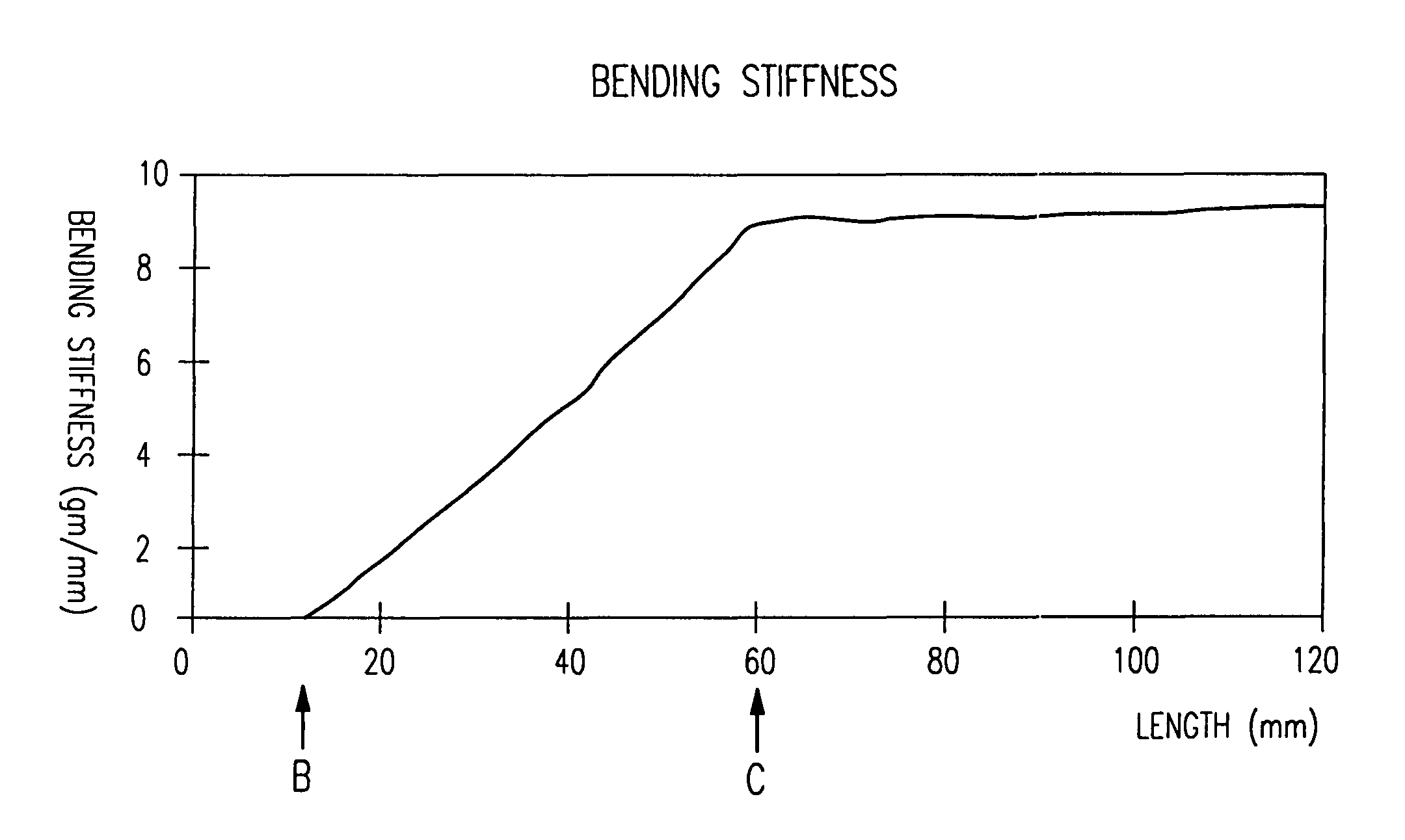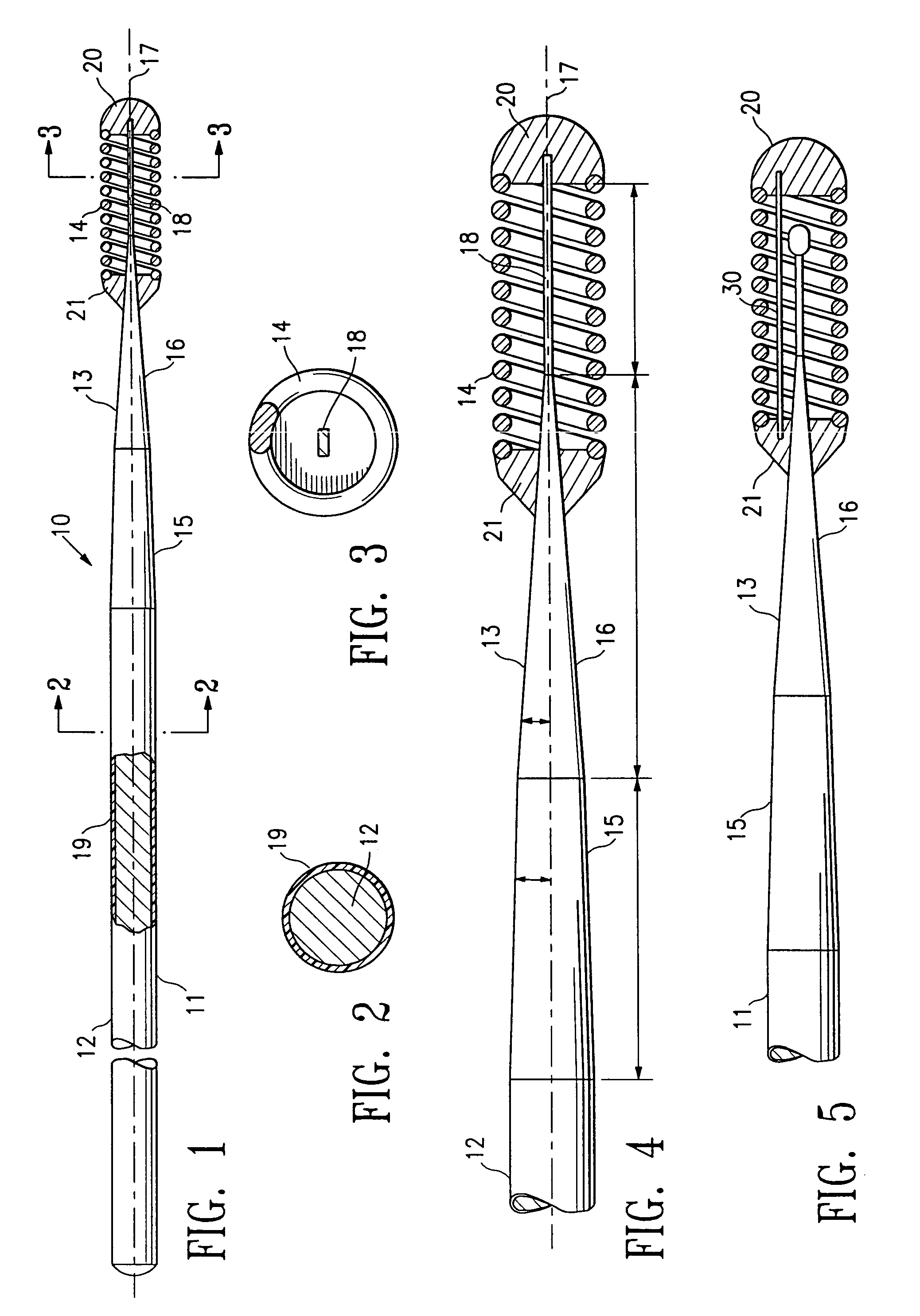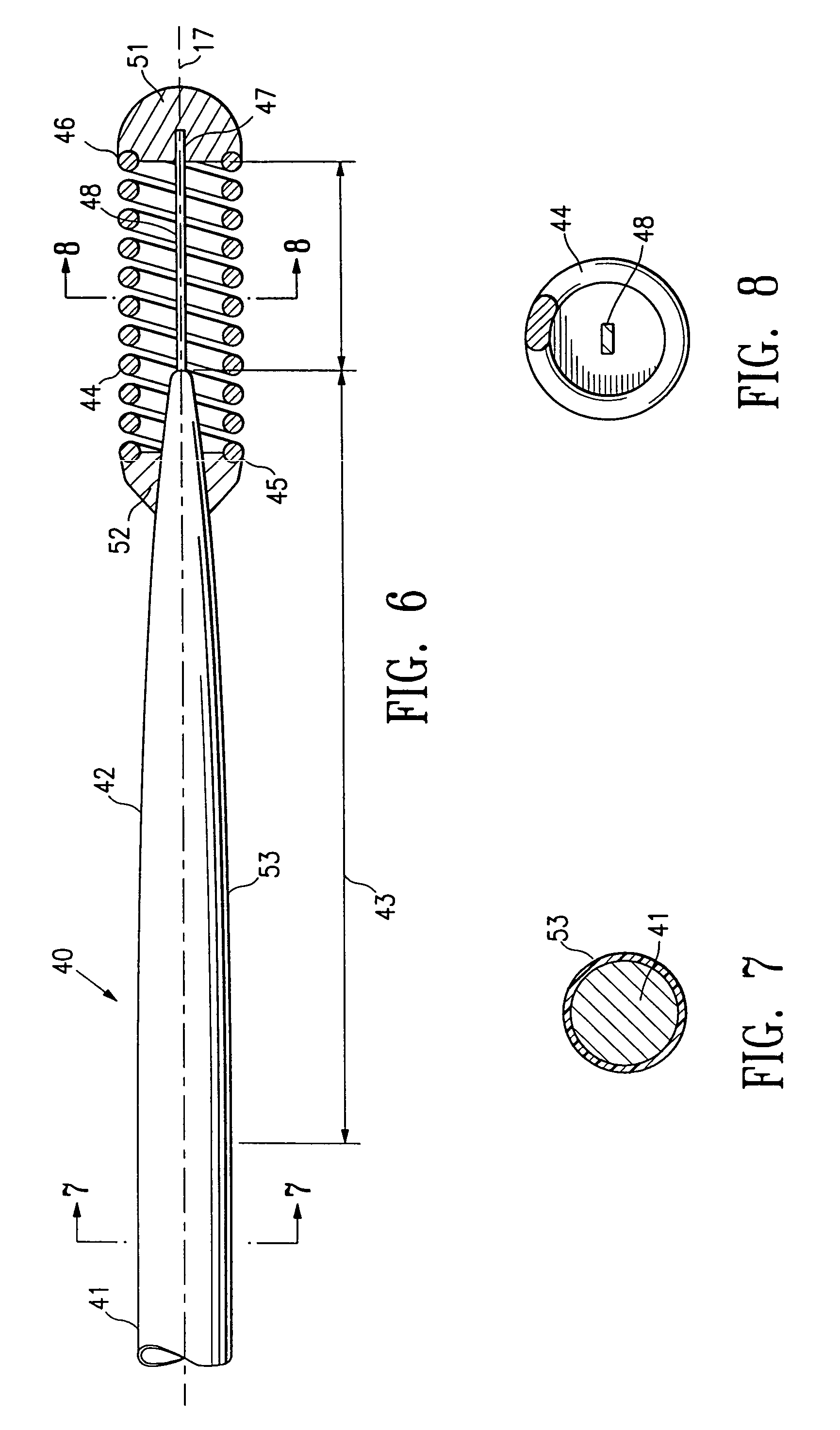Guidewire having linear change in stiffness
a guidewire and linear technology, applied in the field of guidewires, can solve the problems of affecting the ability of physicians to safely and controllably advance the guidewire, affecting the safety of the guidewire, and affecting the use of the conventional guidewire using the tapered distal core section discussed above, so as to improve the handling characteristics and improve the advancement and control
- Summary
- Abstract
- Description
- Claims
- Application Information
AI Technical Summary
Benefits of technology
Problems solved by technology
Method used
Image
Examples
Embodiment Construction
[0042]FIGS. 1-3 depict a guidewire 10 which is a presently preferred embodiment thereof which has a core member 11 with a proximal core section 12, a distal core section 13 and a helical coil 14. The distal core section 12 has a first tapered segment 15 and a second tapered core segment 16 which is distally contiguous to the first tapered core segment. The second tapered segment 16 tapers at a greater degree than the first tapered segment and this additional taper provides a much smoother transition when the distal portion of the guidewire 10 is advanced through a tortuous passageway. The degree of taper of the first tapered core segment 15, i.e. the angle between the longitudinal axis 17 and a line tangent to the first tapered core segment 15 is about 2° to about 10°, whereas the taper of the second tapered core segment 16, i.e. the angle between the longitudinal axis and the second tapered core segment is larger than the first angle and is about 5° to about 10° such as is shown in...
PUM
 Login to View More
Login to View More Abstract
Description
Claims
Application Information
 Login to View More
Login to View More - R&D
- Intellectual Property
- Life Sciences
- Materials
- Tech Scout
- Unparalleled Data Quality
- Higher Quality Content
- 60% Fewer Hallucinations
Browse by: Latest US Patents, China's latest patents, Technical Efficacy Thesaurus, Application Domain, Technology Topic, Popular Technical Reports.
© 2025 PatSnap. All rights reserved.Legal|Privacy policy|Modern Slavery Act Transparency Statement|Sitemap|About US| Contact US: help@patsnap.com



